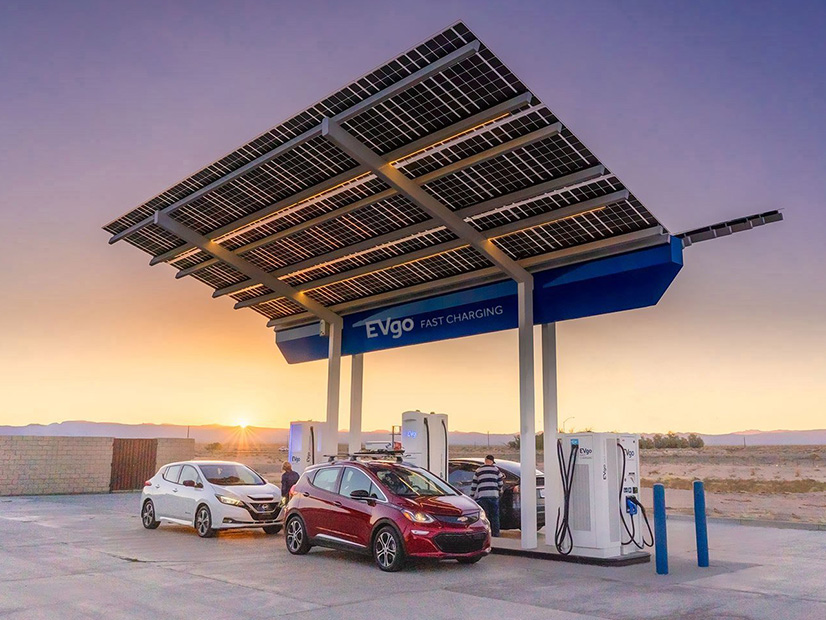Consumers looking to cash in on the Inflation Reduction Act’s tax credits for electric vehicles, scheduled to have gone into effect Jan. 1, may have to wait until the Treasury Department issues rules aimed at ensuring the EVs receiving those credits are manufactured in North America, using critical minerals and battery components also produced on the continent.
The rules were due by the end of 2022, but Treasury and the Internal Revenue Service on Thursday announced they would not be issuing the rules until March 2023, saying existing rules, which base EV tax credits on battery size, would stay in effect.
Sen. Joe Manchin (D-W.Va.), chair of the Senate Energy and Natural Resources Committee, called for an immediate halt on all EV tax credits until the required rules are issued.
“The information released today from the Treasury Department outlining how they will be implementing the commercial and consumer EV tax credits bends to the desires of the companies looking for loopholes and is clearly inconsistent with the intent of the law,” Manchin said in a statement also released on Thursday. “It only serves to weaken our ability to become a more energy-secure nation.”
In addition to demanding that Treasury and the IRS put the credits on hold, Manchin also said he would soon “introduce legislation that further clarifies the original intent of the law and prevents this dangerous interpretation from Treasury from moving forward.”
At issue are the IRA’s provisions setting out eligibility requirements for its “clean car” tax credits. Beginning this year, to qualify for the credit, an EV’s battery must contain at least 40% critical minerals mined and processed either in the U.S. or in a country with which the U.S. has a free-trade agreement. The percentage will go up 10% each year, topping out at 80% after 2026.
Similarly, the law requires that 50% of other battery components be made or assembled in North America, with an annual 10% increase that will reach 100% in 2028.
To qualify for the full $7,500 credit for a new EV, both the critical mineral and battery component requirements must be met. If only one is met, the credit is cut in half.
But while the numbers may be clear, Treasury and the IRS said, defining how they will be determined could be more complex, citing questions and concerns “from vehicle manufacturers and a broad range of stakeholders” about the new requirements.
In a white paper issued with the announcement, the agencies said, “The broad stakeholder interest in these new requirements has highlighted the importance of continued communication with stakeholders while Treasury and the IRS develop proposed guidance on these requirements.”
For example, the white paper notes that neither the IRA nor any other federal statute defines “free-trade agreement.”
Some of the criteria suggested in the white paper include “whether an agreement reduces or eliminates trade barriers on a preferential basis, commits the parties to refrain from imposing new trade barriers, establishes high-standard disciplines in key areas affecting trade (such as core labor and environmental protections), and/or reduces or eliminates restrictions on exports or commits the parties to refrain from imposing such restrictions, including for the critical minerals contained in electric vehicle batteries.”
The white paper also sets out a tentative proposal for a complicated, transitional process for determining compliance with the critical mineral requirement for the next two years. Manufacturers would have to identify individual supply or “procurement” chains for the critical minerals they use, determine if 50% of each mineral comes from the U.S. or a free-trade agreement country, and then calculate “the percentage of the value of qualifying critical minerals contained in the battery.”
“To determine this percentage, the sum of the values of all qualifying critical minerals (determined separately for each procurement chain) contained in the battery is divided by the sum of the values of all critical minerals contained in the battery,” the white paper says.
An equally complicated, four-step process is proposed for determining if a vehicle meets the percentage requirements for battery components.
While Treasury has made no direct response to Manchin, a department spokesperson stressed in an email to NetZero Insider that in the guidance issued thus far, “Treasury is simply following the tax laws and the IRA as written.” The department has also held multiple stakeholder meetings and is continuing to review comments it has received, the spokesperson said.
‘Tweaks’ to Rules?
But beyond any vagueness in the law, Treasury’s efforts at delay could be rooted in rising tensions between the U.S. and long-time allies over the impact of the tax credits, according to industry analysts ClearView Energy Partners.
“Pushback intensified in recent weeks, including European concerns that a combination of generous U.S. incentives and relatively low American energy prices could lead to the deindustrialization of the continent,” ClearView said in a recent email. “However, multiple allied automakers criticized requirements associated with the IRA’s expanded EV tax credit, and the White House appears to have prioritized its response to that issue accordingly.”
President Biden has signaled that the guidance on the EV tax credits coming in March could contain some “tweaks” to the critical mineral and battery component requirements, according to ClearView, hence Treasury’s three-month delay on issuing the guidelines.
Should the IRS heed Manchin’s call for a hold on the credits, it could mean more confusion and frustration for potential EV buyers. The IRA’s EV tax credits are already complicated, linked to a vehicle’s manufacturer’s suggested retail price and consumers’ household income.
EVs with an MSRP of more than $80,000 for a van, SUV or pickup truck, or $55,000 for other cars, are not eligible for the tax credits. Consumers earning more than $150,000 — or $225,000 for a single head of household or $300,000 for couples — are also not eligible.
According to information from Treasury, an EV ordered or purchased before, but not actually on the road until after the critical mineral and battery component rules are released, will still be subject to them.




